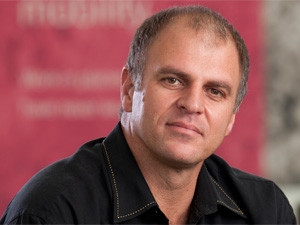
As the IT industry goes through a tremendous change, businesses are being forced to rapidly transform to remain competitive.
So said Gert Schoonbee, MD of T-Systems, speaking yesterday at the T-Systems In-Touch conference in Midrand.
According to Schoonbee, the current IT world has to have fluidity between old and new worlds of doing business - termed bimodal by analyst firm Gartner.
Bimodal IT allows the traditional approach to enterprise technology (emphasising efficiency, stability, accuracy and scalability) to coexist with a second approach that focuses on agility, speed and innovation.
"We are living with the ambiguity of these two worlds where we need predictability, quality of service and continuous cost improvements and this zero distance world where we need to be fast and agile."
The name of the game is to digitise and transform business processes - embracing new ways of connecting with customers, partners and others in the value chain, he added.
Mpumi Nhlapo, head of business development and strategic marketing at Intervate, a T Systems company, said digital transformation enables organisations to compete more effectively, innovate more quickly, and find new ways of doing business.
He defined digital transformation as business investment in new technology, models, systems and processes - to change the way companies sell, market, operate, and scale in an increasingly digital economy.
However, it is not simply about removing and replacing every legacy system and replacing it with new technology innovation, said Nhlapo.
True digital transformation means applying the right IT solutions to respond to opportunities where business value and customer experience converge, he added.
Also, it isn't all about the technology, but the transformational business impact that new technologies can enable, noted Nhlapo.
He pointed out that investment is needed for a fundamental transformation in business, and in the absence of formal investment, all the business has is a pet project.
"Until at an organisation level we make a concise decision to have formal investments we can't really say we are achieving digital transformation."
Peter Reid, SharePoint solutions lead at Intervate, says with business facing more pressure from competition, consumers and start-ups than ever before, agility and innovation, combined with the ability to deliver, is the key to survival.
Right now most businesses' mindset is about keeping the lights on, and they are not spending enough time thinking about what they need to do to keep business sustainable into the future, said Nhlapo.
Mike Buttner, VP delivery at T-systems, warned that in becoming digital and innovative, businesses are going to have failures and things that don't work. However, they have to fix this quickly and eliminate the root cause to prevent this happening again.
T-Systems believes bimodal has the potential to bring about the 'digital nation of South Africa', said Schoonbee.
This model would see organisations form systems - supported by new technologies - to create efficiencies and customer value that accelerate the country's position in the global economy, he added.
"It's up organisations to map the journey and find ways to contribute to the country and 'digital nation'."
Share